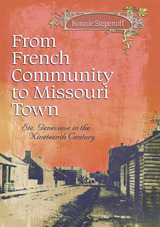329 start with P start with P
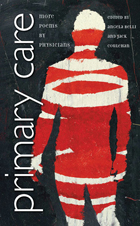
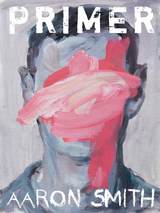
Smith's poetry explores that inexplicable tension between what we say and how we actually feel, exposing the complications of intimacy and the limitations of language to bridge those distances between friends, family members, and lovers. What we deny, in the end, may be just what we actually survive.
Mortality in Smith's work remains the uncomfortable foundation at the center of our relationship with others, to faith, to art, to love as we grow older, and ultimately, to our own sense of who we are in our bodies in the world.
The struggle of this book, finally, is in naming whether just what we say we want is enough to satisfy our primal needs, or are the choices we make to stay alive the same choices we make to help us, in so many small ways, to die.
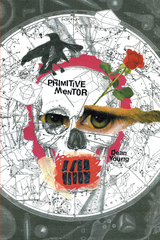
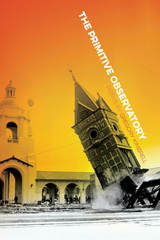
Kimbrell explores such themes as memory, class prejudice, family violence, and greed in a flamboyant, yet matter-of-fact style to create verse that is both amusing and unsettling. Combining prose that evokes H. P. Lovecraft, classical mythology, and Marcel Proust with the look and taut line of traditional formalist verse, the poems appear on the page as perfect rectangles, yet revel in narrative and linguistic absurdities.
The Primitive Observatory offers a dark and evocative experience through the tangible grotesque. Fans of David Lynch, Franz Kafka, Edward Gorey and the like will be startled, excited, and pleased by this entertaining and disturbing book of poetry.


Alan Shapiro’s fourteenth collection of poetry, Proceed to Check Out, is a kind of summing up, or stock-taking, by an aging poet, of his precarious place in a world dominated by the ever-accelerating pace of technological innovation, political disruption, personal loss, and racial strife. These poems take on fundamental subjects—like the nature of time and consciousness and how or why we become who we are—but Shapiro presses them into becoming urgent and timely.
Employing idiomatic range and formal variety, Shapiro’s poems move through recurring dreams, the coercions of childhood, and the mysterious connections of mind and matter, pleasure and memory. They meet an abiding need to find empathy and understanding in even the most challenging places—amid disaffection, public discord, and estrangement. His grasp of contemporary life—in all its insidious violence and beauty—is distinct, comprehensive, and profound.
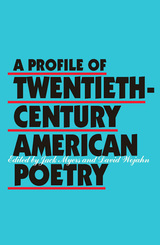
Seven chronologically arranged essays—each covering roughly a decade from 1908 through 1988—plus two special-focus essays on black and female poets, an introduction by Ed Folsom, and a preface by editors Jack Myers and David Wojahn, outline the critical, creative, aesthetic, and cultural forces at work in the American poetry of this century. Several contributors, including Michael Heller, Richard Jackson, and Jonathan Holden, have recently published important book-length critical studies in their essay area; all have published well-regarded collections of their own poetry.
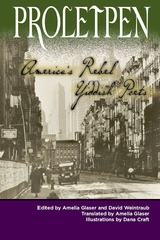
This anthology presents a rich but little-known body of American Yiddish poetry from the 1920s to the early 1950s by thirty-nine poets who wrote from the perspective of the proletarian left. Presented on facing pages in Yiddish and English translation, these one hundred poems are organized thematically under such headings as Songs of the Shop, United in Struggle, Matters of the Heart, The Poet on Poetry, and Wars to End All Wars. One section is devoted to verse depicting the struggles of African Americans, including several poems prompted by the infamous Scottsboro trial of nine African American men falsely accused of rape. Home to many of the writers, New York City is the subject of a varied array of poems. The volume includes an extensive introduction by Dovid Katz, a biographical note about each poet, a bibliography, and a timeline of political, social, and literary events that provide context for the poetry.
Winner of the Fenia and Yaakov Leviant Memorial Prize in Yiddish Studies for Outstanding Translation
A Choice Outstanding Academic Title
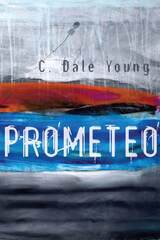
“Some men find nothing, and others / find omens everywhere,” writes C. Dale Young in Prometeo, a collection whose speaker is a proverbial “child of fire.” In poems that thrive off of their distinct voice, the speaker confronts generational and lived trauma and their relationship to his multi-ethnicity. We are presented with the idea of the past’s burial in the body and its constellatory manifestations—both in the speaker and those around him—in disease and pain, but also in strength and a capacity for intimacy with others and nature. Grounded in precise language, Young’s examination of the past and its injuries turns into a celebration of the self. In stark, exuberant relief, the speaker proclaims “…I was splendidly blended, genetically engineered / for survival.” Resilient, Young’s poems find beauty in landscape, science, and meditation.
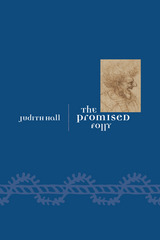
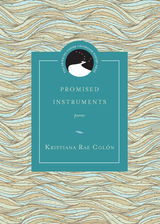
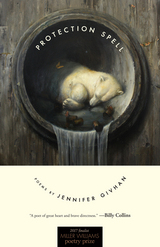
Finalist, 2017 Miller Williams Poetry Prize, edited by Billy Collins
“A poet of great heart and brave directness.”
—Billy Collins
In Protection Spell Jennifer Givhan explores the guilt, sadness, and freedom of relationships: the sticky love that keeps us hanging on for no reason other than love, the inky place that asks us to continue revising and reimagining, tying ourselves to this life and to each other despite the pain (or perhaps because of it). These poems reassemble safe spaces from the fissures cleaving the speaker’s own biracial home and act as witnesses speaking to the racial iniquity of our broader social landscape as well as to the precarious standpoint of a mother-woman of color whose body lies vulnerable to trauma and abuse. From insistent moments of bravery, a collection of poems arises that asks the impossible, like the childhood chant that palliates suffering by demanding nothing less than magical healing: sana sana colita de rana, si no sanas hoy, sanas mañana (the frog who loses his tail is commanded to grow another). In the end, Givhan’s verse offers a place where healing may begin.
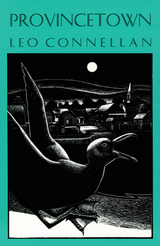

Spirited verse.
Prudentius (Aurelius Prudentius Clemens) was born in AD 348 probably at Caesaraugusta (Saragossa) and lived mostly in northeastern Spain, but visited Rome between 400 and 405. His parents, presumably Christian, had him educated in literature and rhetoric. He became a barrister and at least once later on an administrator; he afterwards received some high honor from Emperor Theodosius. Prudentius was a strong Christian who admired the old pagan literature and art, especially the great Latin poets whose forms he used. He looked on the Roman achievement in history as a preparation for the coming of Christ and the triumph of a spiritual empire.
The Loeb Classical Library edition of the poems of Prudentius is in two volumes. Volume I presents: “Preface” (Praefatio); “The Daily Round” (Liber Cathemerinon); twelve literary and attractive hymns, parts of which have been included in the Breviary and in modern hymnals; “The Divinity of Christ” (Apotheosis), which maintains the Trinity and attacks those who denied the distinct personal being of Christ; “The Origin of Sin” (Hamartigenia) attacking the separation of the “strict” God of the Old Testament from the “good” God revealed by Christ; “Fight for Mansoul” (Psychomachia), which describes the struggle between (Christian) Virtues and (Pagan) Vices; and the first book of “Against the Address of Symmachus” (Contra Orationem Symmachi), in which pagan gods are assailed.
The second volume contains the second book of “Against the Address of Symmachus,” opposing a petition for the replacement of an altar and statue of Victory; “Crowns of Martyrdom” (Peristephanon Liber), fourteen hymns to martyrs mostly of Spain; “Lines To Be Inscribed under Scenes from History” (Tituli Historiarum), forty-nine four-line stanzas that are inscriptions for scenes from the Bible depicted on the walls of a church; and an Epilogue.

Spirited verse.
Prudentius (Aurelius Prudentius Clemens) was born in AD 348 probably at Caesaraugusta (Saragossa) and lived mostly in northeastern Spain, but visited Rome between 400 and 405. His parents, presumably Christian, had him educated in literature and rhetoric. He became a barrister and at least once later on an administrator; he afterwards received some high honor from Emperor Theodosius. Prudentius was a strong Christian who admired the old pagan literature and art, especially the great Latin poets whose forms he used. He looked on the Roman achievement in history as a preparation for the coming of Christ and the triumph of a spiritual empire.
The Loeb Classical Library edition of the poems of Prudentius is in two volumes. Volume I presents: “Preface” (Praefatio); “The Daily Round” (Liber Cathemerinon); twelve literary and attractive hymns, parts of which have been included in the Breviary and in modern hymnals; “The Divinity of Christ” (Apotheosis), which maintains the Trinity and attacks those who denied the distinct personal being of Christ; “The Origin of Sin” (Hamartigenia) attacking the separation of the “strict” God of the Old Testament from the “good” God revealed by Christ; “Fight for Mansoul” (Psychomachia), which describes the struggle between (Christian) Virtues and (Pagan) Vices; and the first book of “Against the Address of Symmachus” (Contra Orationem Symmachi), in which pagan gods are assailed.
The second volume contains the second book of “Against the Address of Symmachus,” opposing a petition for the replacement of an altar and statue of Victory; “Crowns of Martyrdom” (Peristephanon Liber), fourteen hymns to martyrs mostly of Spain; “Lines To Be Inscribed under Scenes from History” (Tituli Historiarum), forty-nine four-line stanzas that are inscriptions for scenes from the Bible depicted on the walls of a church; and an Epilogue.
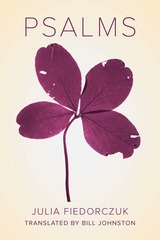
Fiedorczuk writes of the natural world, the built environment, motherhood, brotherhood, and of vast and tiny passages of time. And as she does, she discovers a new voice, singing to soothe and inspire.
the milky way with its claws
of time, its pelt of stars?
—Excerpt from “Psalm XVII”

Born in Dresden in 1962, Durs Grünbein is the most significant and successful poet of his generation in Germany. Since 1988, when the then-twenty-five-year-old burst onto the scene with his poetry collection Grauzone morgens—a mordant reckoning with the East Germany he grew up in—Grünbein has published more than thirty books of poetry and prose, which have been translated into dozens of languages.
In 2005 the volume Ashes for Breakfast introduced Grünbein to English-language readers for the first time by sampling poetry from his first four collections. Psyche Running picks up where that volume left off and offers a selection of poems from his nine subsequent collections, which shows how Grünbein has developed from his ironic take on the classical into an elegiac exploration of history through dream fragments and poems with a haunting existential unease.
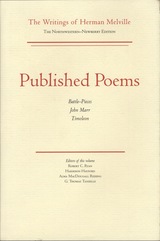
Although he surprised the world in 1866 with his first published book of poetry, Battle-Pieces and Aspects of the War, Herman Melville had long been steeped in poetry. This new offering in the authoritative Northwestern-Newberry series, The Writings of Herman Melville, with a historical note by Hershel Parker, is testament to Melville the poet. Penultimate in the publication of the series, Published Poems follows the release of Melville’s verse epic, Clarel (1876), and with it, contains the entirety of the poems published during Melville’s lifetime: Battle-Pieces, as well as John Marr and Other Sailors, with Some Sea-Pieces (1888), and Timoleon Etc. (1891).
Battle-Pieces and Aspects of the War has long been recognized as a great contribution to the poetry of the Civil War, comparable only to Whitman’s Drum-Taps. Its idiosyncrasies, many of them grounded in British poetry, kept it from immediate popularity, but it was not the production of a novice. Melville had made himself over into a poet in the late 1850s and had tried to publish a previous collection of poetry—now lost—in 1860.
John Marr and Other Sailors is a retrospective nautical book. Its portraits of sailors were influenced by Melville’s own experience of aging as well as by his long acquaintance with wasted mariners at the Sailors’ Snug Harbor on Staten Island, where his brother was governor.
The book modulates into "Sea-Pieces," including the grisly "Maldive Shark" and "To Ned," a powerful reflection on how Melville’s personal adventures with the Typee islanders in 1842 had accrued rich historical significance over the decades.
Thematically less unified, Timoleon Etc. contains poems with many European and exotic settings from ancient to modern times. The most famous are "After the Pleasure Party" and "The Age of the Antonines." Published in the last year of Melville’s life, some of the poems were first written many years earlier; for example, Melville copied "The Age of the Antonines" out for his brother-in-law in 1877, describing it as something found in a bundle of old papers. One whole section seems to have been almost entirely salvaged from the unpublished 1860 volume of poetry. As with the other volumes in the Northwestern-Newberry series, the aim of this edition of Published Poems is to present a text as close to the author’s intention as surviving evidence permits. To that end, the editorial appendix includes a historical note by Hershel Parker, the dean of Melville scholars, which gives a compelling, in-depth account of how one of America’s greatest writers grew into the vocation of a poet; an essay by G. Thomas Tanselle on the printing and publishing history of the works in Published Poems; a textual record that identifies the copy-texts for the present edition and explains the editorial policy; and substantial scholarly notes on individual poems.
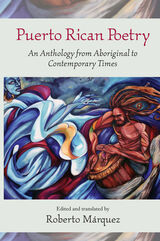
Book I, "Before Columbus and After, 1400–1820," focuses on the foundational origins of Puerto Rican poetry and the clash of competing visions embodied in the rich and heterogeneous corpus of anonymous popular verse forms. Book II, "The Creole Matrix: Notions of Nation, 1821–1950s," concentrates on the period in which a distinctively Puerto Rican consciousness emerged and the island's subsequent experience as a U. S. colony in the decades after the Spanish-Cuban-American War up to formal establishment of Commonwealth status. Books III and IV are devoted, respectively, to the era of insular "Critique, Revolt, and Renewal" in the mid-twentieth century, and to the "New Creoles, New Definitions" that developed in the late twentieth century, including the distinct and parallel growth of Puerto Rican poetry in the mainland United States.
In addition to a general introduction and concise biographical profiles of each poet, Márquez provides a detailed "Chronology" of the history of the island that has shaped the poets and informed their work. The resulting volume is a major contribution to our understanding and appreciation of Puerto Rican literature and the heterogeneous society in which it has been produced.
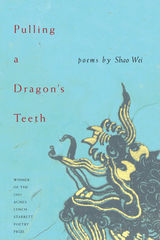
Shuttling between her childhood in a small mountain city on the shores of the Yangtze River (soon to be flooded by the Three Gorges Dam Project) and adulthood in Manhattan, Shao Weicaptures the pains and joys of tradition and displacement familiar to any immigrant. Blending fairy tales, New York images, family stories, and the universal rites of passage associated with growing up, she paints a vibrant canvas of passion and imagination.


Ancient Rome’s longest epic.
Silius Italicus (T. Catius, AD 25–101), was consul in 68 and governor of the province of Asia in 69; he sought no further office but lived thereafter on his estates as a literary man and collector. He revered the work of Cicero, whose Tusculan villa he owned, and that of Virgil, whose tomb at Naples he likewise owned and near which he lived. His epic Punica, in seventeen books, on the second War with Carthage (218–202 BC), is based for facts largely on Livy’s account. Conceived as a contrast between two great nations (and their supporting gods), championed by the two great heroes Scipio and Hannibal, his poem is written in pure Latin and smooth verse filled throughout with echoes of Virgil above all (and other poets); it exploits with easy grace, but little genius, all the devices and techniques of traditional Latin epic.
The Loeb Classical Library edition of Silius Italicus is in two volumes.

Ancient Rome’s longest epic.
Silius Italicus (T. Catius, AD 25–101), was consul in 68 and governor of the province of Asia in 69; he sought no further office but lived thereafter on his estates as a literary man and collector. He revered the work of Cicero, whose Tusculan villa he owned, and that of Virgil, whose tomb at Naples he likewise owned and near which he lived. His epic Punica, in seventeen books, on the second War with Carthage (218–202 BC), is based for facts largely on Livy’s account. Conceived as a contrast between two great nations (and their supporting gods), championed by the two great heroes Scipio and Hannibal, his poem is written in pure Latin and smooth verse filled throughout with echoes of Virgil above all (and other poets); it exploits with easy grace, but little genius, all the devices and techniques of traditional Latin epic.
The Loeb Classical Library edition of Silius Italicus is in two volumes.

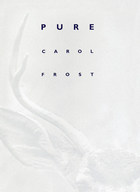
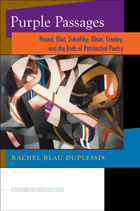
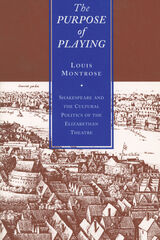
Montrose first locates the public and professional theater within the ideological and material framework of Elizabethan culture. He considers the role of the professional theater and theatricality in the cultural transformation that was concurrent with religious and socio-political change, and then concentrates upon the formal means by which Shakespeare's Elizabethan plays called into question the absolutist assertions of the Elizabethan state. Drawing dramatic examples from the genres of tragedy and history, Montrose finally focuses his cultural-historical perspective on A Midsummer Night's Dream.
The Purpose of Playing elegantly demonstrates how language and literary imagination shape cultural value, belief, and understanding; social distinction and interaction; and political control and contestation.
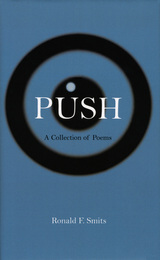
In this sophisticated debut collection, Ronald F. Smits deftly weaves the comic with the tragic as he vividly recreates days past in rural Pennsylvania. With a boyish charm, the eighty poems in Push lyrically recall baseball games, campouts under the stars, and dusty treks along lonely back roads—bringing to life a vision of mid-century America that is by turns nostalgic and clear-eyed, humorous and heartfelt. A masterly evocation of a place and a time that feel quintessentially American, Push opens our eyes to the twinned power of literature and memory.
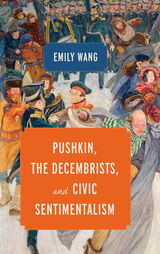
Through careful readings of the literature of Pushkin and others active in the northern branch of the Decembrist movement, such as Kondraty Ryleev, Wilhelm Küchelbecker, and Fyodor Glinka, Wang traces the development of “emotional communities” among the members and adjacent writers. This book illuminates what Wang terms “civic sentimentalism”: the belief that cultivating noble sentiments on an individual level was the key to liberal progress for Russian society, a core part of Decembrist ideology that constituted a key difference from their thought and Pushkin’s. The emotional program for Decembrist community members was, in other ways, a civic program for Russia as a whole, one that they strove to enact by any means necessary.
READERS
Browse our collection.
PUBLISHERS
See BiblioVault's publisher services.
STUDENT SERVICES
Files for college accessibility offices.
UChicago Accessibility Resources
home | accessibility | search | about | contact us
BiblioVault ® 2001 - 2024
The University of Chicago Press




